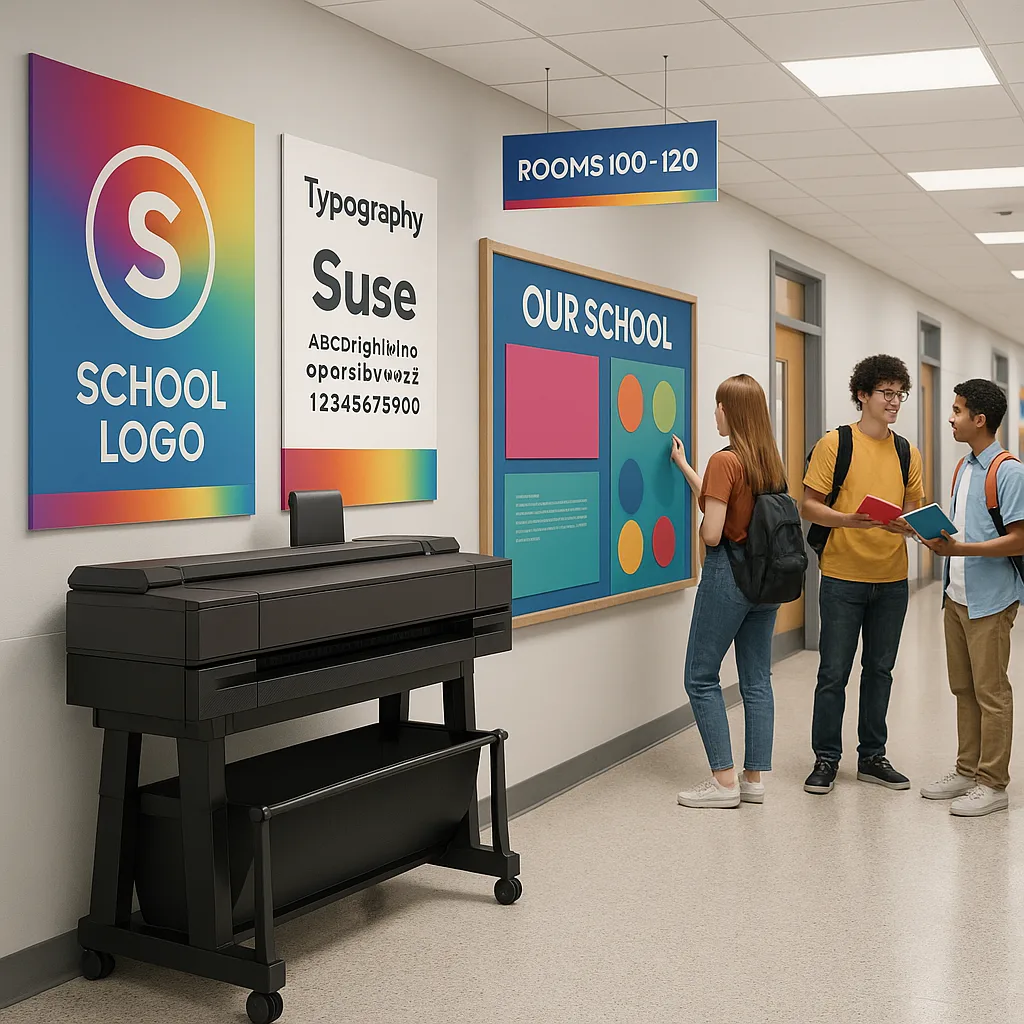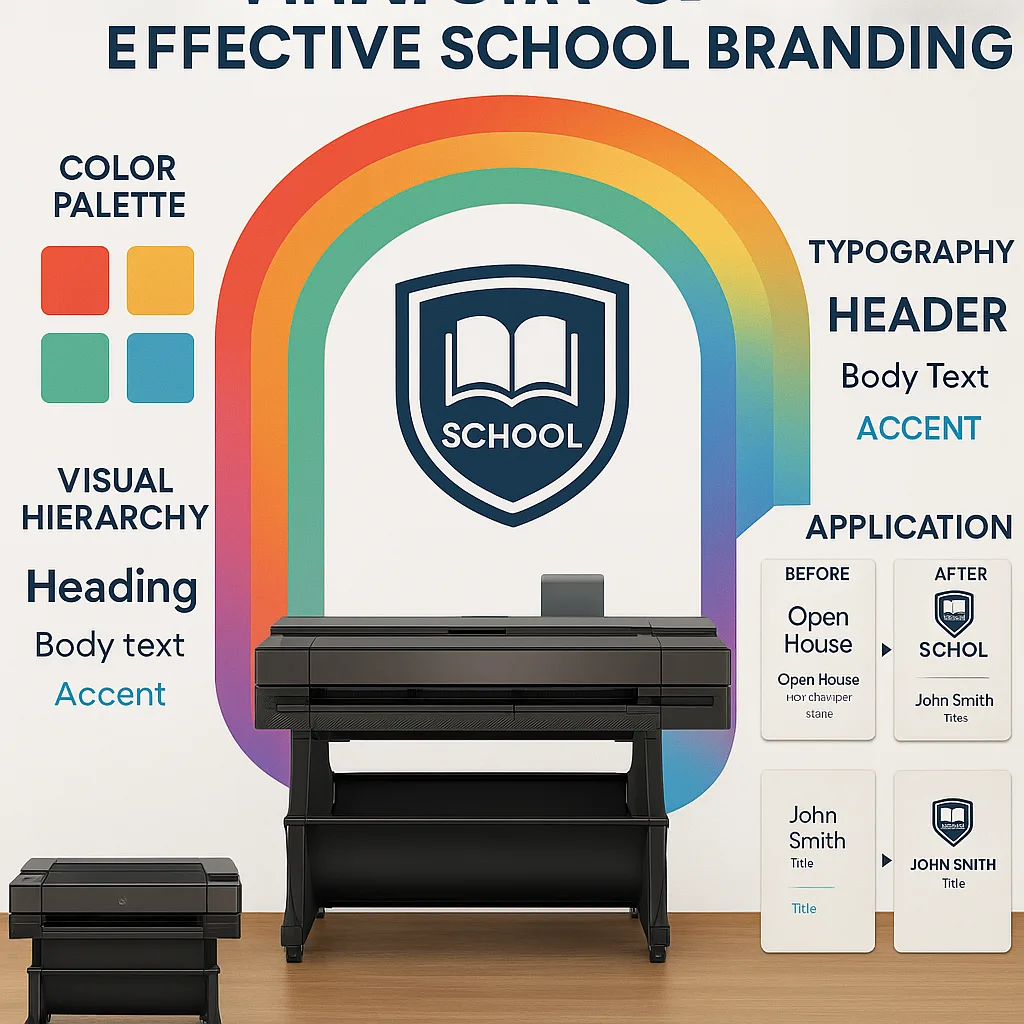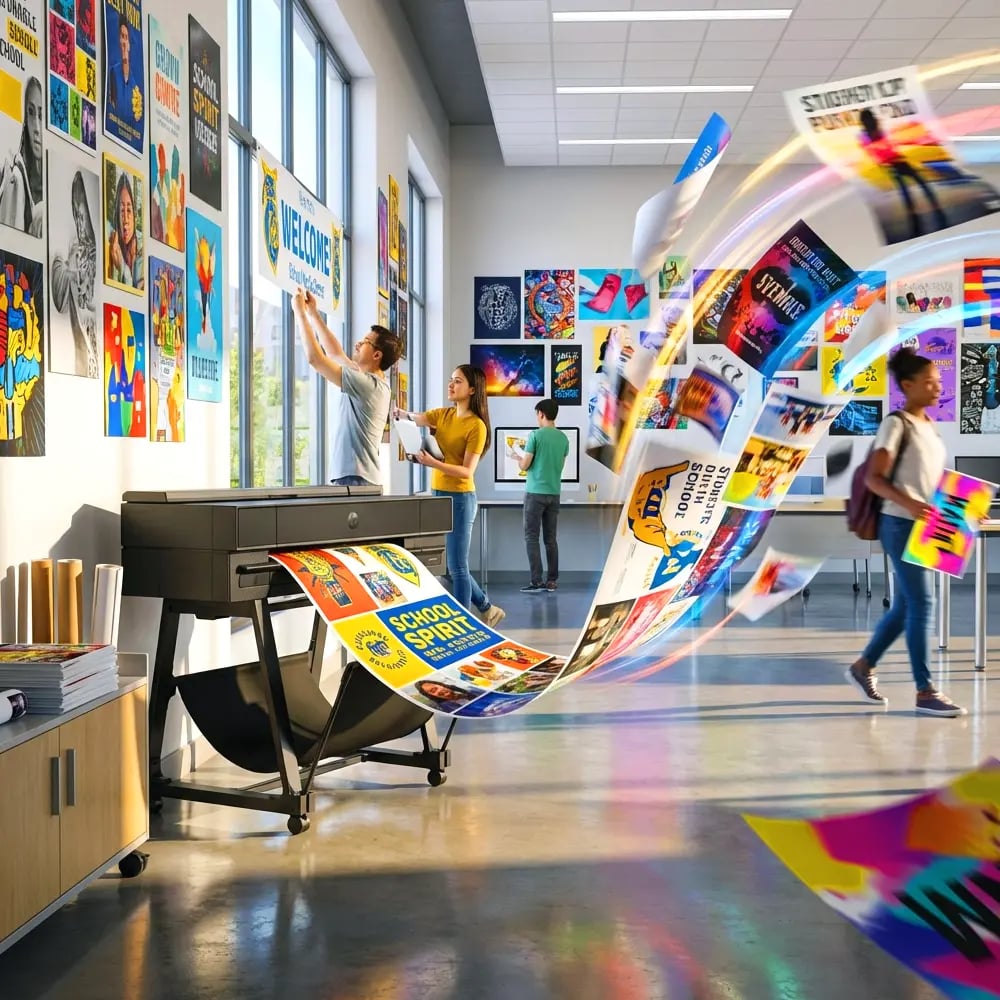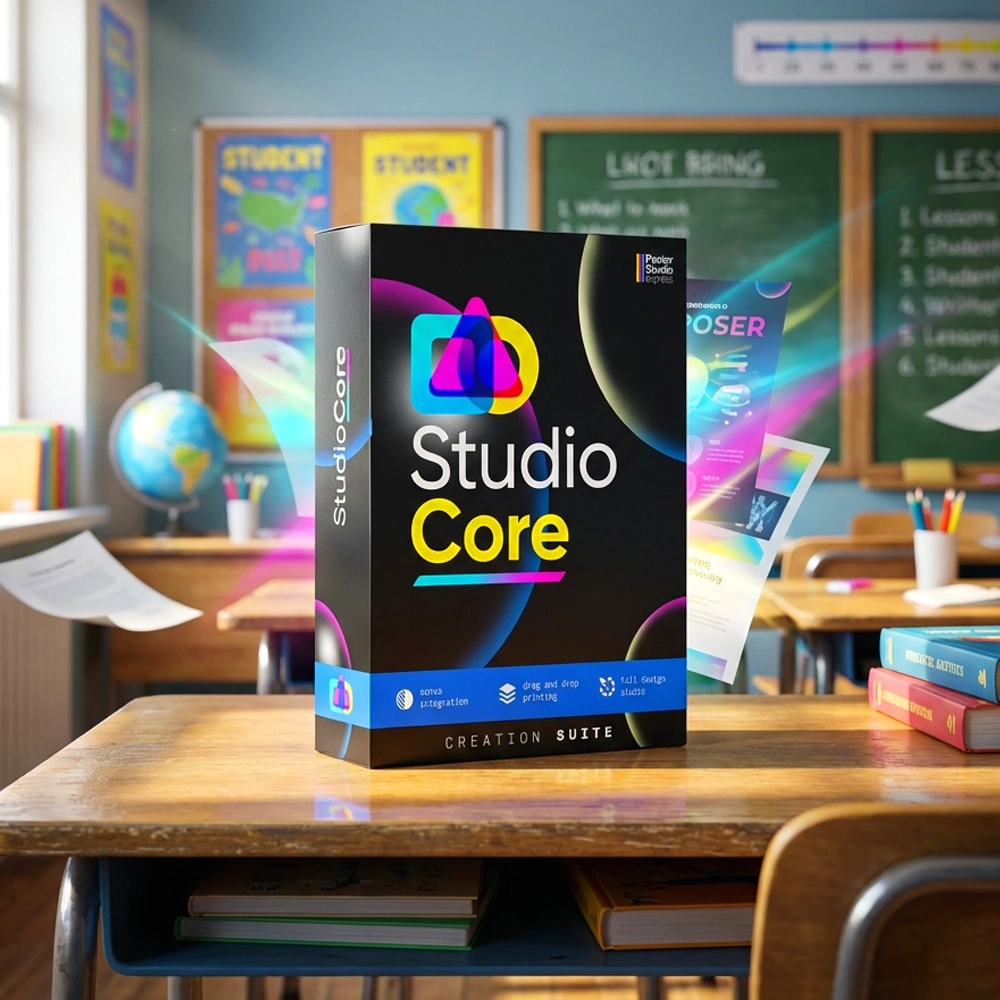
The Science of School Branding
A cohesive visual identity transforms schools from educational institutions into memorable brands. Research shows that consistent branding across all touchpoints can increase revenue by up to 23% according to Lucidpress’s 2021 Brand Consistency Report. For schools leveraging poster making machine branding strategies, this translates to enhanced enrollment, stronger community engagement, and measurable improvements in stakeholder perception.
Understanding School Brand Architecture
School branding extends beyond logos and colors. According to the National School Public Relations Association, 78% of parents form their first impression of a school through visual communications. Therefore, implementing a comprehensive brand strategy requires systematic planning and execution across multiple channels.
The foundation of effective school branding rests on three pillars: consistency, authenticity, and measurability. Each element must work in harmony to create a unified message that resonates with students, parents, and the broader community. Furthermore, schools that invest in professional branding see an average 15% increase in enrollment applications within the first year of implementation.
Core Components of Visual Identity
A comprehensive school brand identity encompasses several critical elements. Research from the Design Management Institute indicates that design-driven companies outperform the S&P Index by 219% over ten years. For educational institutions, this principle translates into tangible benefits through strategic visual communication.

Logo design serves as the cornerstone of school identity. The most effective educational logos combine simplicity with meaning, using shapes and symbols that reflect institutional values. Additionally, typography choices significantly impact brand perception, with serif fonts conveying tradition and sans-serif fonts suggesting modernity and accessibility.
Brand Impact Metrics
Poster Making Machine Branding Implementation
Cost Reduction
In-house printing vs outsourcing
Days to Launch
Brand material creation
Brand Control
Complete customization
Hour Turnaround
Emergency signage
Color Psychology in Educational Settings
Color selection impacts student performance and behavior significantly. A study by the University of Texas found that specific color environments can affect student test scores by up to 13%. Furthermore, the strategic use of color in educational materials enhances retention rates by 40% according to research published in the Journal of Educational Psychology.
Primary colors stimulate elementary learners, while muted tones support focus in secondary education. Blue enhances productivity and mental clarity, making it ideal for STEM environments. Meanwhile, green reduces eye strain and promotes calm, perfect for reading areas and libraries.
Schools implementing color-coded wayfinding systems report 35% fewer late arrivals to class. Additionally, consistent color application across grade levels helps students navigate campus more efficiently, reducing anxiety and improving overall academic performance.
Typography Standards That Drive Results
Research indicates that proper typography can increase reading comprehension by up to 38%
Header Fonts
Sans-serif fonts like Montserrat or Open Sans create modern, approachable headers that improve readability by 23% in digital formats.
Body Text
Serif fonts for body text increase retention by 15% in printed materials. Georgia and Merriweather optimize reading flow.
Display Type
Bold display fonts capture 40% more attention on posters. Impact and Bebas Neue excel for event announcements.
Case Study: Lincoln Elementary’s Brand Transformation
Lincoln Elementary faced declining enrollment and community engagement before implementing a comprehensive rebranding strategy. Using their in-house poster making machine, they transformed their visual identity in just six weeks.
The school developed a vibrant color palette combining energetic orange with calming blue, reflecting both academic excellence and nurturing environment. Subsequently, they standardized all communications using consistent typography and design elements across 200+ touchpoints.
Brand Guidelines Documentation
Comprehensive brand guidelines ensure consistency across all school communications. Research from McKinsey & Company shows that B2B companies with strong brands generate 20% higher revenue than their competitors. For schools, this principle translates into enhanced community trust and increased funding opportunities.
Logo Usage
Define clear space, minimum sizes, and approved variationsImplementation Rules
Maintain 20% clear space around logos. Minimum size: 1.5 inches wide for print, 120px for digital. Never stretch, rotate, or apply effects.Color Codes
Document RGB, CMYK, HEX, and Pantone valuesExact Specifications
Primary: #2C5AA0 (RGB: 44,90,160). Secondary: #6A4C93 (RGB: 106,76,147). Always test print samples before full production runs.Typography
Specify primary, secondary, and web-safe alternativesFont Hierarchy
Headers: Montserrat Bold. Body: Open Sans Regular. Fallback: Arial/Helvetica. Maintain 1.5x line height for optimal readability.Ready to Transform Your School’s Brand?
Join over 4,200 schools nationwide that have elevated their visual communications with Poster Studio Express
Or call our specialists at 866-788-7900






